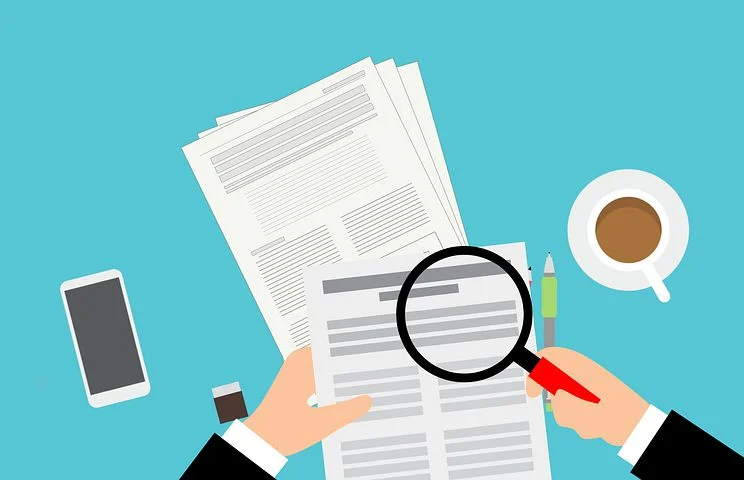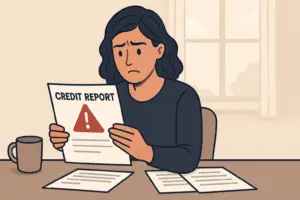If you have a credit card, a mortgage, an auto loan, or some other line of credit you have a credit report. The Fair Credit Reporting Act (FCRA) protects consumers from creditors and credit reporting agencies that misreport or misuse credit information or fail to follow certain procedures. Unfortunately, unresolved errors and FCRA violations can cause many consumer problems.
The Consumer Financial Protection Bureau creates an annual report compiling common consumer complaints and financial issues. Consumers’ top complaints usually relate to incorrect information in their credit reports. The Federal Trade Commission also published a study that revealed 26% of participants found at least one error in their credit reports that could negatively impact their financial status.
If your credit information is incorrect, it can affect your credit score but in addition, you might be:
- Rejected for a mortgage,
- Denied a car loan,
- Passed over by a potential employer,
- Turned down by a credit card company,
- Unable to rent an apartment,
- Assessed higher interest rates or unfavorable terms on loans you do receive, or
- Unjustly refused future financial benefits.
7 Common Errors that Can Lead to FCRA Violations
Credit reports are prepared by Credit Reporting Agencies (CRAs) that gather information from various creditors such as banks, credit card companies, landlords, loan agencies, and more. Each of these entities may make mistakes when tracking, reporting, and compiling your credit information.
Some of the more common errors to look for in your credit reports include:
- Loan or credit card accounts that don’t show payments made or balances paid off—payments may have been applied to the wrong account or someone else’s late charges might appear on your account.
- Accounts may be listed twice (or more) due to a creditor’s clerical error—when companies merge or are acquired by another company your credit information can be duplicated by accident.
- Closed accounts that appear open—be sure if you closed an account the report indicates “closed by consumer” so it’s clear your credit was not canceled.
- Old bad debts that were settled or paid in full still appear—credit reporting agencies must remove debts after a certain number of years.
- A former spouse’s debt appears on your credit report—after a divorce, be sure to separate all marital debt and verify that your ex’s new debt does not appear in your reports.
- Unfamiliar or unauthorized debts are listed as yours—you may be the victim of identity theft if someone is using your personal information to incur debt in your name. This is a more complicated situation than a simple clerical error so it’s wise to contact an identity theft lawyer to help resolve this problem.
- Mistakes in your name, address, or social security number—misspellings, similar social security numbers, and other typographical errors can cause confusion and inaccurate reporting.
The mere presence of these problems does not automatically qualify as an FCRA violation. In most cases, you must notify the CRAs and the creditor who supplied the incorrect debt information about the problem to invoke FCRA rules.
When Does a Reporting Error Become an FCRA Violation?
You have the right to dispute any false or incorrect information in your credit reports and ask for corrections. The Consumer Financial Protection Bureau explains how to dispute errors in your credit reports and supplies contact information for the three major credit reporting agencies for your use.
Once the CRAs and creditors are aware of a mistake, they must take certain actions to avoid violating the Fair Credit Reporting Act. Creditors that furnish information and CRAs that report debts commit FCRA violations if they:
- Continue to provide and report old debts that should be removed because they were settled, paid in full, or are time-barred under the law. Credit reports should not show accounts that are more than seven or ten years old depending on the type of debt.
- Continue to provide and report incorrect information such as listing a debt as “charged off by the creditor” when the consumer actually paid the account in full, misstating the true balance owed, showing past due payments when the consumer always paid on time, listing disputed debts after receiving notice of identity theft, and not providing a way for consumers to dispute errors and identity theft-related debt.
- Confuse and mix consumers, files, and accounts and refuse to correct the mistakes after receiving notice of the errors.
- Fail to follow FCRA debt dispute rules and procedures after receiving written notice of a disputed debt. More specifically, once they are notified, CRAs and information suppliers must perform a reasonable investigation into the disputed debt. CRAs and creditors should do separate investigations. If an error is found, both must correct the mistake and remove the disputed debt from the credit report.
- Credit Reporting Agencies may violate the FCRA if they:
- don’t tell the source creditor that you are disputing the debt they reported,
- don’t perform a reasonable investigation into your dispute,
- don’t correct or delete inaccurate, incomplete, or unverifiable info within a certain time frame, or
- make mistakes in your credit report that are the result of the Credit Reporting Agency failing to adopt reasonable procedures.
- A creditor may violate the FCRA if it:
- doesn’t notify every Credit Reporting Agency that you have disputed its debt,
- doesn’t submit corrected info after completing its investigation,
- continues to submit information it knows is incorrect (or should know based upon a reasonable investigation),
- doesn’t do an investigation,
- doesn’t provide a reasonable way for you to dispute a debt, or
- doesn’t provide results within 5 days of finishing its investigation.
If the CRA or the source creditor doesn’t follow FCRA rules and refuses to repair your credit report, you may need the legal guidance of a credit report lawyer to protect your financial future.
We Protect Consumers Facing FCRA Violations
After you have notified the Credit Reporting Agencies and the original creditor about errors in your credit report, they must follow FCRA requirements within a certain amount of time. If you have been stonewalled by a CRA or powerful creditor committing FCRA violations, it’s time to partner with a dedicated credit report lawyer.
The Schlanger Law Group has extensive experience fighting credit bureaus and lenders who turn their backs on innocent consumers. You have rights, let us help protect those rights. Call (212) 500-6114 or fill out this simple form to schedule a free case consultation today.







